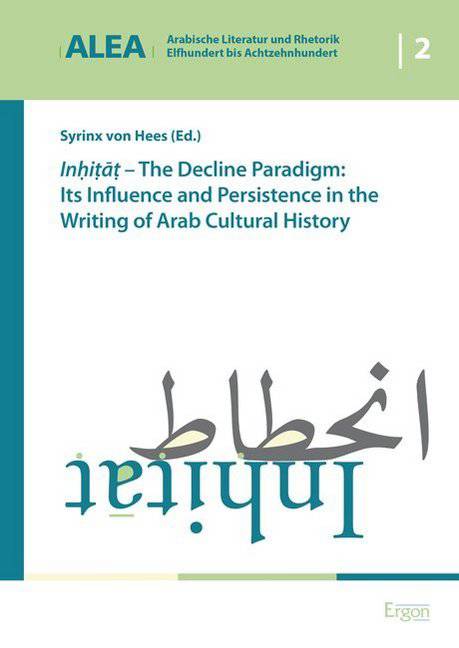
- Afhalen na 1 uur in een winkel met voorraad
- Gratis thuislevering in België vanaf € 30
- Ruim aanbod met 7 miljoen producten
- Afhalen na 1 uur in een winkel met voorraad
- Gratis thuislevering in België vanaf € 30
- Ruim aanbod met 7 miljoen producten
Zoeken
Inhitat - The Decline Paradigm: Its Influence and Persistence in the Writing of Arab Cultural History
Hardcover | Engels | Arabische Literatur und Rhetorik - Elfhundert bis Achtzehnhundert (ALEA) | nr. 2
€ 35,45
+ 70 punten
Omschrijving
As numerous studies have shown, the European colonial paradigm of writing Arab history, according to which a golden age of greatness was followed by an epoch of stagnation or even decline in the post-Abbasid era, was internalized by the emerging intelligentsia of the na¿¿a to become an integral part of Arab historiography, public discourse, and historical imagination more largely. Although the motives, subjects and specific arguments may vary, a general thematic of decline continues to pervade the relevant literature to this very day.With contributions bySyrinx von Hees: Inhi a - The Decline Paradigm: Its Influence and Persistence in the Writing of Arab Cultural History. Introduction || Manfred Sing: The Decline of Islam and the Rise of Inhi a : The Discrete Charm of Language Games about Decadence in the 19th and 20th Centuries || Ines Weinrich: The Inhi a Paradigm in Arab Music History || Marek M. Dziekan: Inhi a as a Histori- cal Period in Arab Culture: Traditional Views Versus an Attempt at a New Interpretation || Geert Jan van Gelder: Good Times, Bad Times: Opin- ions on fasad az-zaman, "the Corruption of Time" || Tarif Khalidi: On Progress and Decline in Ibn Khaldun || Sonja Brentjes: On Four Sciences and Their Audiences in Ayyubid and Mamluk Socie- ties || Syrinx von Hees: Meaning and Function of Aja ib in Writing on Mamluk Historiography and in Mamluk Historical Writing Itself || Dana Sajdi: New Voices in History: Nouveau Literacy in the 18th-Century Ottoman Levant
Specificaties
Betrokkenen
- Uitgeverij:
Inhoud
- Aantal bladzijden:
- 221
- Taal:
- Engels
- Reeks:
- Reeksnummer:
- nr. 2
Eigenschappen
- Productcode (EAN):
- 9783956502477
- Uitvoering:
- Hardcover
- Afmetingen:
- 176 mm x 248 mm
- Gewicht:
- 563 g

Alleen bij Standaard Boekhandel
+ 70 punten op je klantenkaart van Standaard Boekhandel
Beoordelingen
We publiceren alleen reviews die voldoen aan de voorwaarden voor reviews. Bekijk onze voorwaarden voor reviews.







